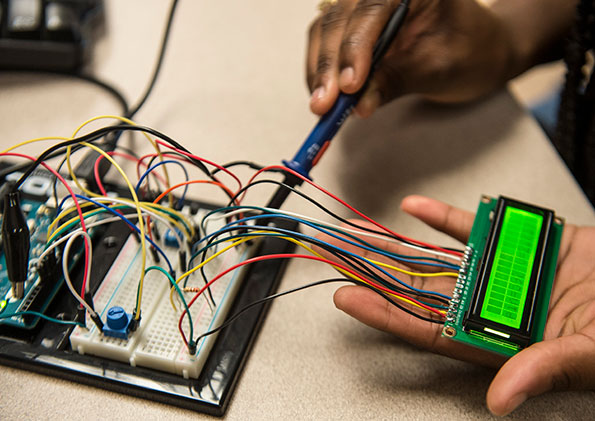Posted by Admin on 24-04-2024 in Shiksha hub
Bachelor of Technology (EI) at A.P.J. Abdul Kalam Technological University: Introduction, Admission, Registration, Eligibility, Duration, Fees, Syllabus 2024

Admission Process
1. Admission to the B.Tech in EI at A.P.J. Abdul Kalam Technological University is competitive and merit-based.
2. Prospective students must appear for and score well on the Kerala Engineering Architecture Medical (KEAM) entrance exam.
3. Application forms for KEAM can be obtained online at the official KEAM portal. Candidates must fill out these forms and submit them before the deadline.
4. Based on the KEAM results, candidates are shortlisted and invited for counseling where they can opt for the EI course based on their ranking.
Eligibility Criteria
1. Applicants must have completed 12th grade or equivalent from a recognized board with Physics, Chemistry, and Mathematics as core subjects.
2. A minimum aggregate mark of 50% in the aforementioned subjects is typically required.
3. Additionally, candidates should meet the domicile requirements as specified in the KEAM eligibility criteria, focusing on residents of Kerala or those with strong local connections.
Fee Structure
|
Component |
Fee (per annum) |
|---|---|
|
Tuition |
INR 75,000 |
|
Development Fee |
INR 5,000 |
|
Miscellaneous Fees |
INR 10,000 |
|
Total |
INR 90,000 |
Duration
The Bachelor of Technology in Electronics & Instrumentation is a full-time course spread over four years.
The program is divided into eight semesters, with each year comprising two semesters.
Syllabus
1. The syllabus includes core subjects such as Digital Electronics, Signals and Systems, Industrial Instrumentation, and Control Systems.
2. Advanced topics might cover Robotics, Artificial Intelligence in Instrumentation, and Special Sensors.
3. Students are also required to undertake practical labs, workshops, and a final year project to demonstrate their technical capabilities.
Scholarships
Merit-based scholarships are available for top-performing students.
Need-based grants are also offered to economically disadvantaged students.
Scholarships specific to women and minorities may also be available to encourage diversity in the technical field.
Career Opportunities
Graduates can pursue a range of careers in areas such as automation, robotics, manufacturing, aerospace, and healthcare industries.
They are well-suited for roles like Instrumentation Engineer, Control System Designer, or Process Analyst.
Further studies can lead to specializations in AI, machine learning, or robotic process automation, enhancing career prospects.
FAQs
1. What is the focus of the EI program?
The program focuses on applying electronic and instrumentation engineering to automate and improve systems within industries.
2. How competitive is the admission process?
Admission is highly competitive, relying on KEAM scores and subsequent counseling.
3. Are there any internship requirements?
Yes, internships are encouraged to gain industry exposure.
4. What are the laboratory facilities like?
The university boasts state-of-the-art labs equipped with modern instrumentation and technology.
5. Can I pursue higher education after B.Tech in EI?
Absolutely, students often pursue master’s degrees in specialized areas of technology.
6. What are the research opportunities in EI?
There are ample research opportunities in emerging areas like IoT and smart sensors.
7. How does the university support startups or entrepreneurship?
The university has incubation centers to support budding entrepreneurs in technology.
8. What scholarships are available to students?
Both merit and need-based scholarships are offered to eligible students.
9. Are there opportunities for international exposure?
Yes, the university has partnerships with foreign universities for student exchange programs.
10. What are the career prospects after graduation?
Graduates have vast opportunities in industrial automation, research and development, and system design.